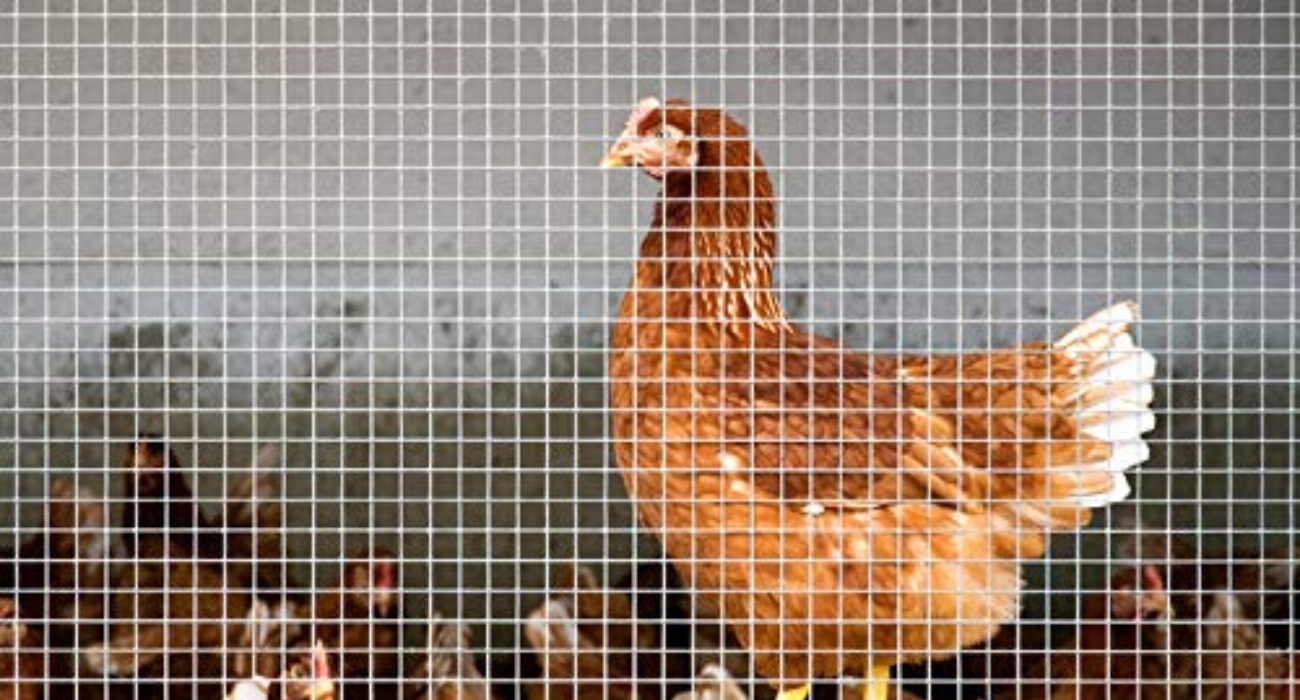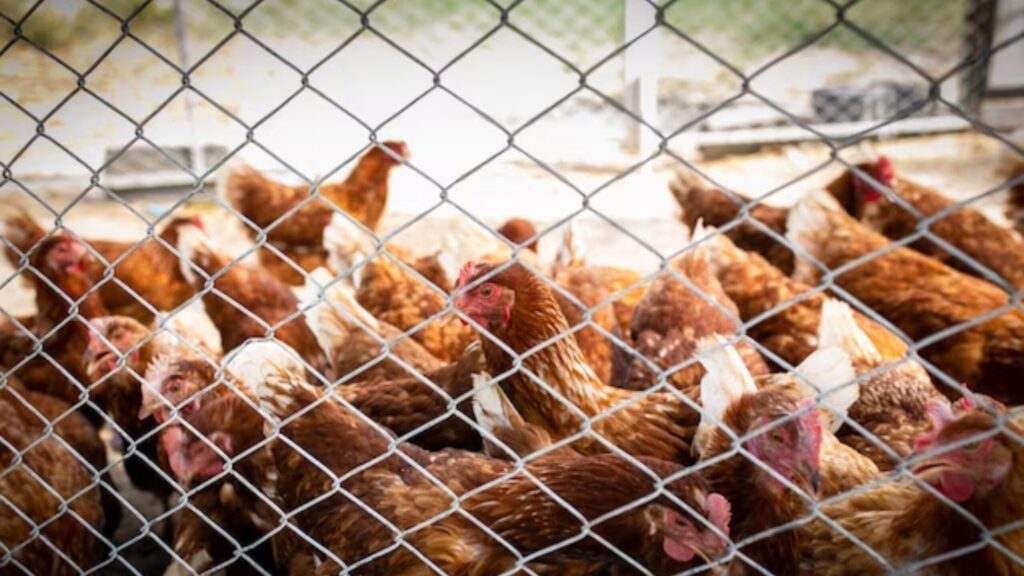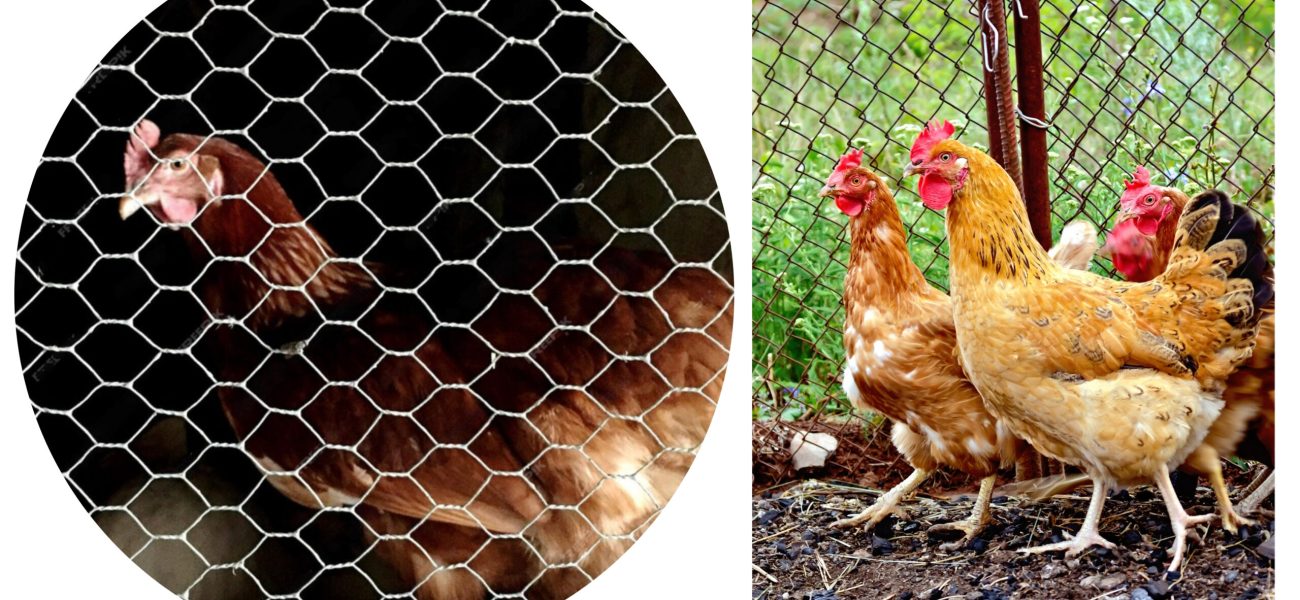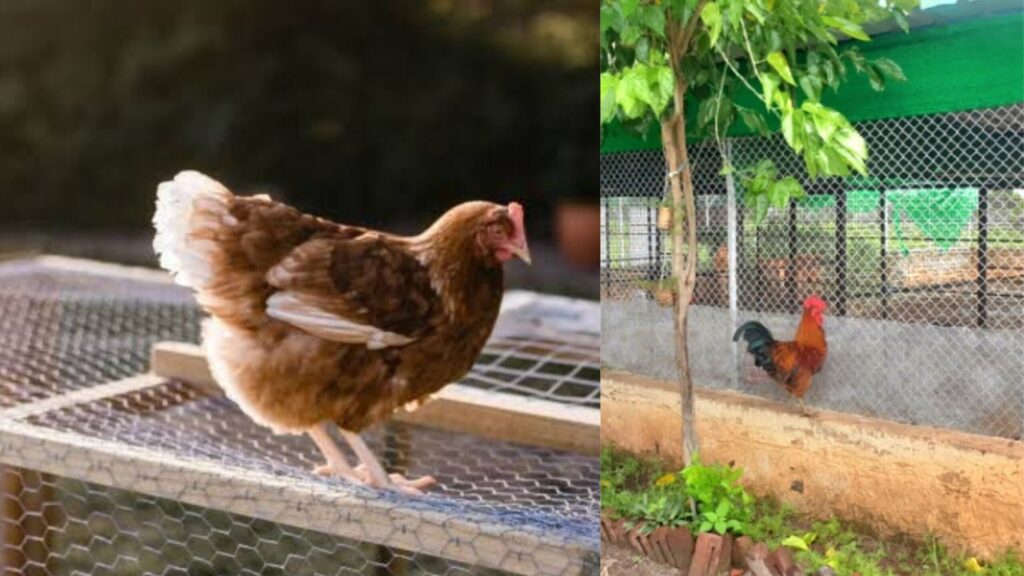- +91 98430 70904
- lakshmi_wirenetting@yahoo.com



Chicken mesh, often known as chicken wire, is an excellent option for a variety of applications since it is a cost-effective, adaptable solution with several advantages. For many useful reasons, chicken mesh is the best option when it comes to fencing—whether you’re seeking for something for your garden, your animals, or even building projects.
Enhanced Structural Integrity, You may strengthen your walls and stop damages and cracks brought on by outside influences like impact, settling, and temperature fluctuations by employing chicken mesh. By acting as a barrier and dispersing the stress uniformly throughout the surface, the mesh increases the surface’s resistance to any harm. Because chicken mesh is composed of strong materials like stainless steel or galvanized steel, it is extremely resilient to damage. It is resistant to inclement weather, such as rain, snow, and intense heat, especially when zinc or PVC coating is applied. Long-term outdoor use requires wire mesh that is resistant to rust and corrosion.

Farming & Poultry: Perfect for constructing enclosures for small animals or chicken coops and poultry fencing. Because of its flexibility, the mesh is simple to form into various shapes.
Garden fencing: Lets water and sunlight through while keeping pests like deer, rabbits, and squirrels out of your garden. Use in plastering, reinforcing concrete, and providing structural support for a variety of construction projects.
Do It Yourself Projects: Because of its flexibility and lightweight design, it is a popular choice for crafts and home repair projects. It can be used to create rustic house décor or trellises, among other ornamental projects.

Those compared to fencing solutions made of plastic, many options for chicken mesh are recyclable, particularly those made of metal. In landscaping, chicken wire is frequently used for trellises, rustic accents, and garden patterns. It can be painted to have a more attractive appearance or it might fit in with the surroundings.
Chicken mesh is available in various gauges, sizes, and coatings, allowing it to be customized to meet particular needs. There are many options available, so you may select between a heavy-duty mesh for predator-proof cages or a lightweight one for tiny gardens.
Beginning at the Corner Posts: Unroll the chicken mesh beginning at one of the corner posts. Securing the mesh to the corner post with wire ties (for metal posts) or staples (for wooden posts) requires holding it tightly. Attach the mesh with a staple gun or hammer.
Stretch the Mesh: Pull the mesh taut as you unroll it along the fence line. To maintain the tension in the mesh while working, you can employ a friend or a fence puller. Tightly fasten the mesh to the line posts by making sure they are both level with the ground and firmly fastened. The mesh can be fastened to metal poles with wire ties or timber posts with staples.

Reinforcing made of chicken mesh serves to evenly distribute loads across the surface, lowering the chance of cracking. It can aid in the plaster’s adhesion to the wall and aid in preventing cracks. You might use galvanized welded wire mesh in addition to hexagon chicken wire. This provides your hens with an additional layer of safety thanks to the electric fencing and sturdy, well-built linear framework.
A great compromise between strength and weight is found in chicken mesh, which is ideal for containing animals and safeguarding places. Although strong enough for most applications, it is easy to work with.
Setting up a chicken mesh fence is a sensible way to safeguard your land, yard, and animals. You can construct a long-lasting fence with the correct materials, careful planning, and simple equipment. If you’re looking for a strong, affordable, simple-to-install, and adaptable fencing or other solution, chicken mesh is the way to go. Long-term protection, ease of use, and customization to suit individual requirements make it a great investment for farmers, gardeners, and homeowners.
Sri Lakshmi Wire Netting company offers premium fencing solutions with unmatched quality. Our durable and customizable products ensure top-tier protection for any space. Choose us for reliable, long-lasting solutions tailored to your needs.
No. 5, Brindhavan Colony, Kulatheri Main Road, Near Perks School, Uppilipalayam, Coimbatore – 641015, Tamil Nadu, India
+91 98430 70904
Copyright © 2025 Sri Lakshmi Wire Netting Company. All Rights Reserved
WhatsApp us